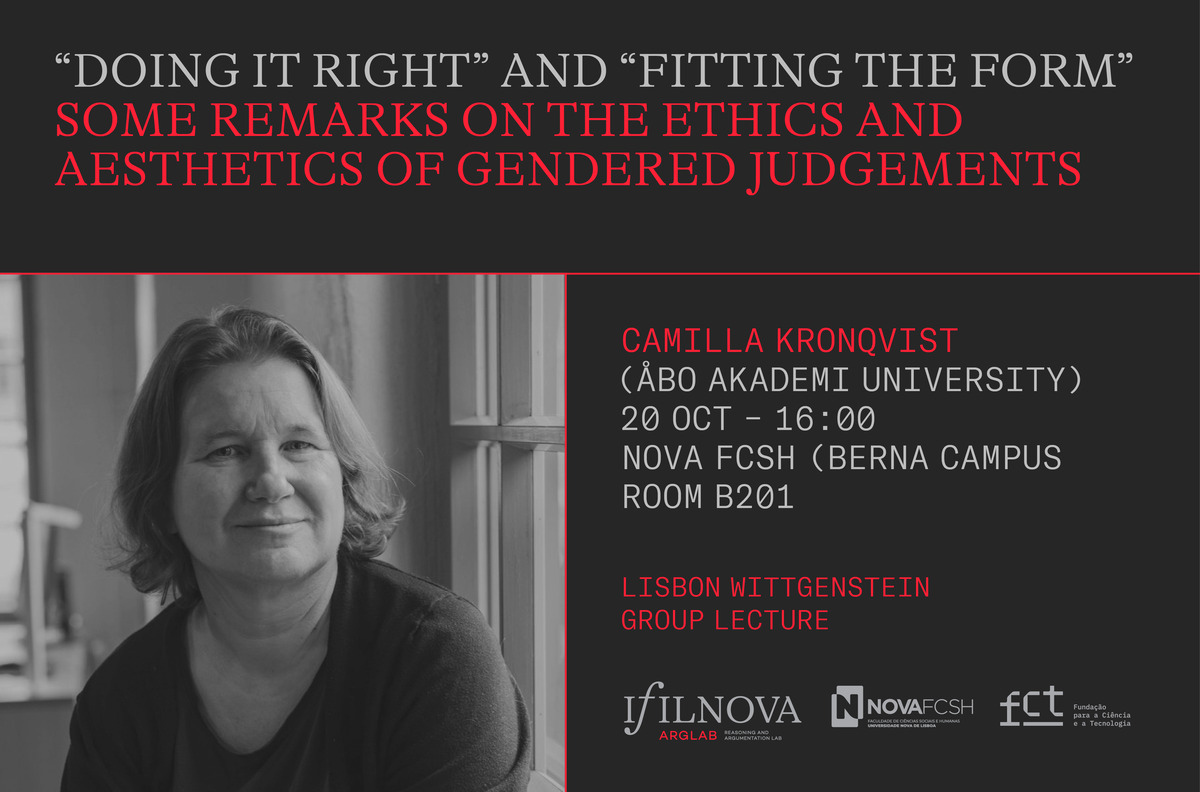Camilla Kronqvist

I begin by endorsing two claims about “gender identity”. First, that in so far as we use “gender identity” to talk about the way gender is imposed on a person by their social environment from a third-person perspective, it is better to talk about “gender norms” (cf. Gheaus 2023). Second, that insofar as we use “gender identity” to talk about the way gender is perceived as an expression of an individual from a first-person perspective, it is better to talk about “gender experience” (cf. Chappell 2023). I then suggest that a better way of combining talk about “gender norms and experience” than regarding both as making claims of identity, is to see how they turn on and invoke aesthetic judgements. I use this notion broadly to include direct expressions of experiences of beauty, but also standards that indirectly inform our understanding of what is “fitting”, leaning on some remarks on “fit” by Wittgenstein in relation to logical form, and in his “Lectures on Aesthetics”. I then turn to moral and ethical questions that arise from second-person experiences and judgements that a specified form of life is fitting for people of a particular gender, or that someone does not fit the form. Raising questions about the kind of normativity that surrounds our ways of making sense of sexuality, I consider what, if any, ethical significance we can attach to talk about doing gender “right” or being a “good” boy or girl, woman or man.
Bio
Camilla Kronqvist is a University Lecturer in Philosophy at Åbo Akademi University in Turku, Finland, which has been a center for Wittgensteinian research for over 30 years. Her research interests include topics such as love, emotions, moral meaning, selfhood, and subjectivity. She is currently leading a research project on the ethics of gendered and sexual relationships. Kronqvist has published several articles on Wittgenstein’s philosophy and its relation to love and intimate relationships, moral relativism and evolutionary explanations of morality, and the philosophy of education — particularly in relation to the promotion of human rights — as well as on conceptual and moral change in family relations. She is the co-editor of two anthologies on Wittgenstein (Palgrave, 2009; Cambridge Scholars Publishing, 2013) and the co-author and co-editor of a research anthology on the Finnish philosopher and anthropologist Edvard Westermarck (Routledge, 2017).
This is the fourth Lisbon Wittgenstein Group Lecture, a series of lectures within the scope of the activities of the Lisbon Wittgenstein Group, coordinated by Nuno Venturinha.

